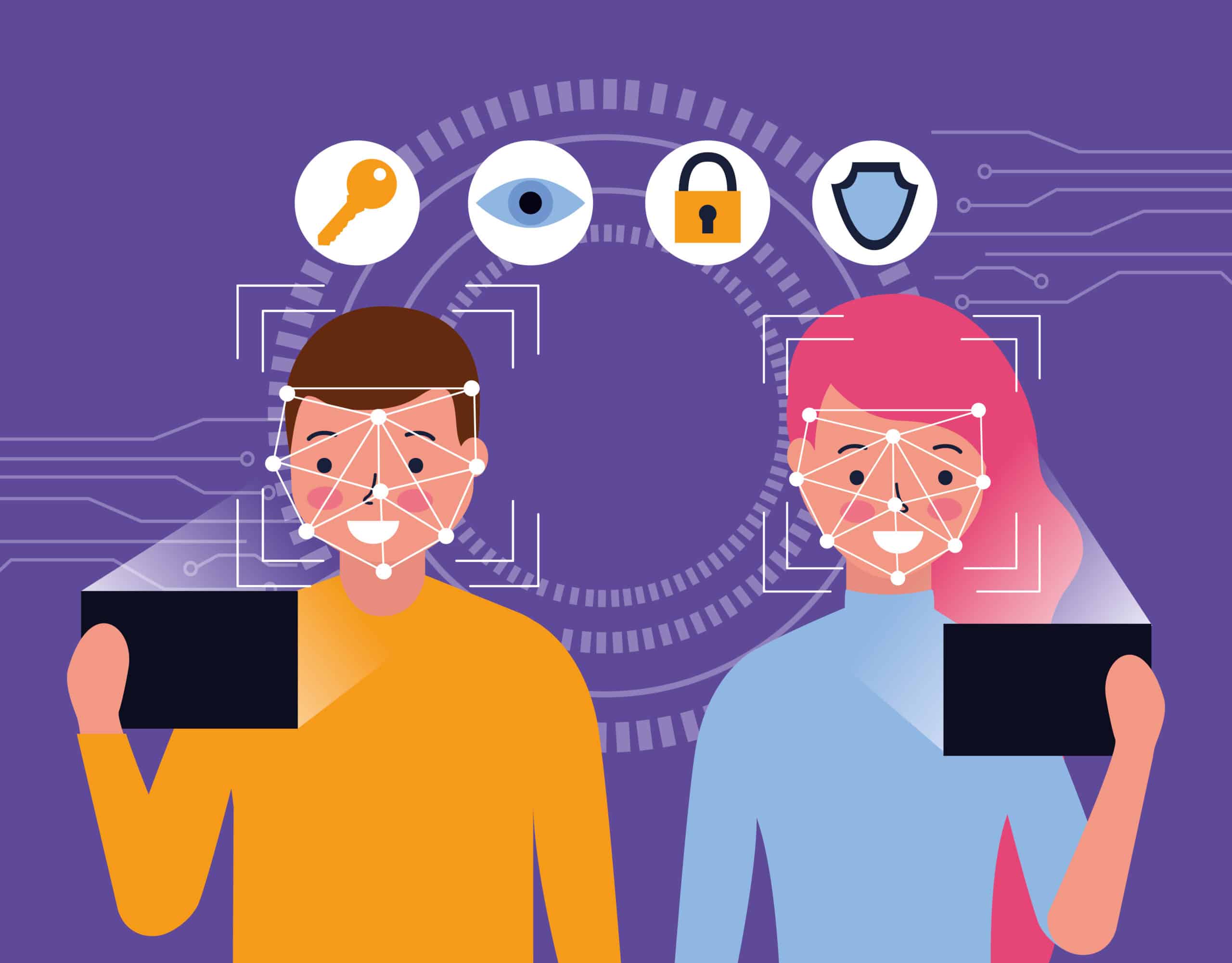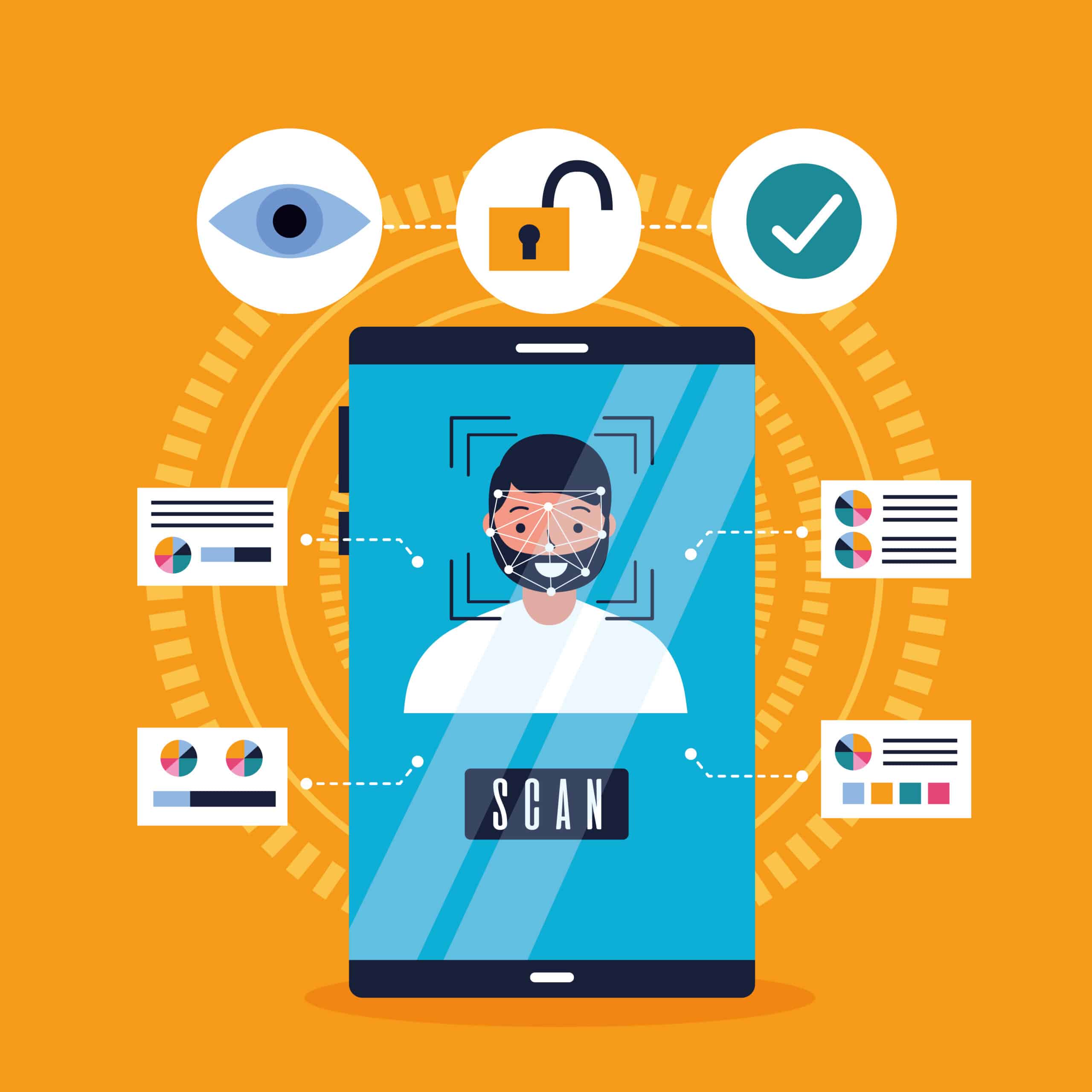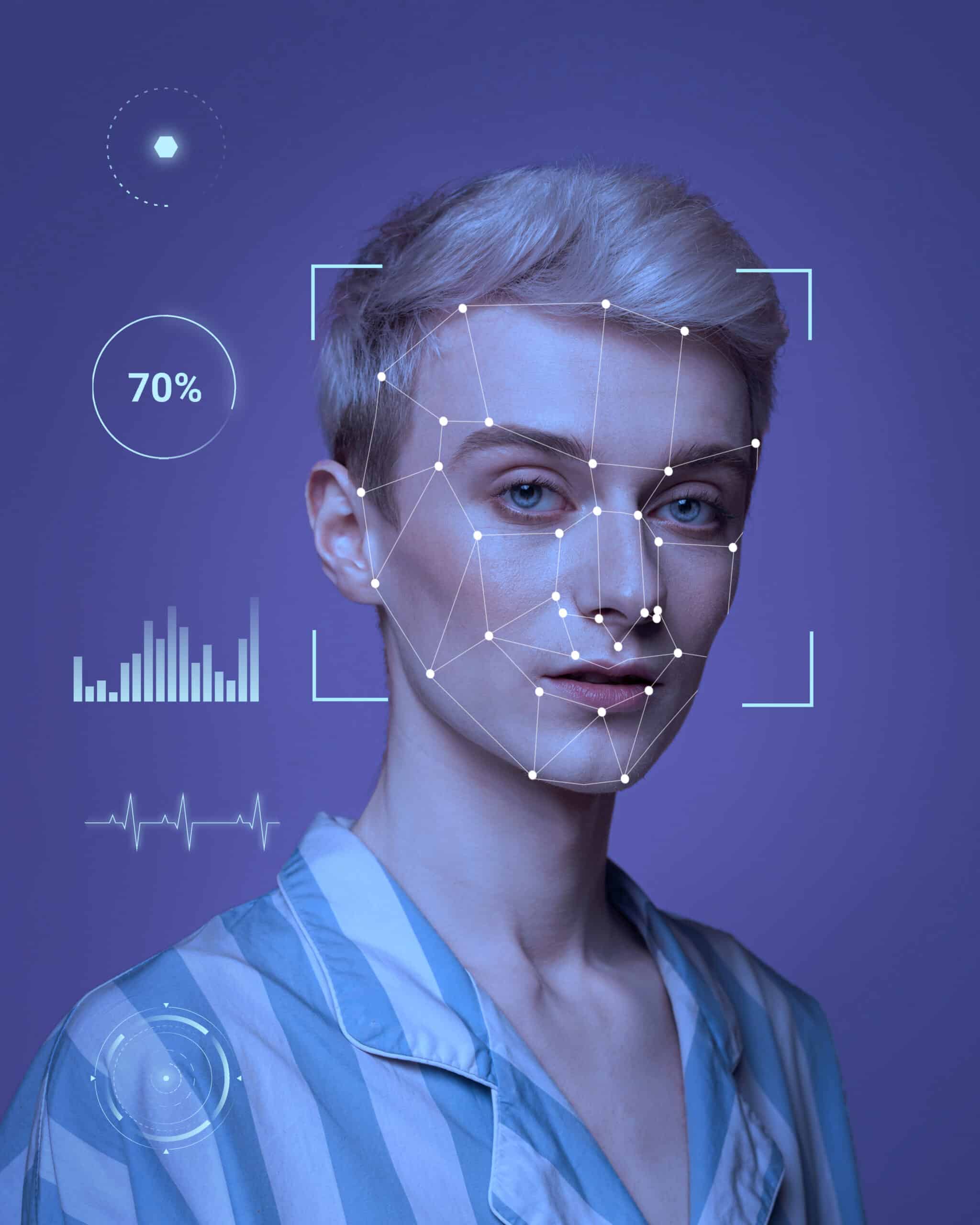The Benefits of Facial Recognition Identity Verification in Healthcare
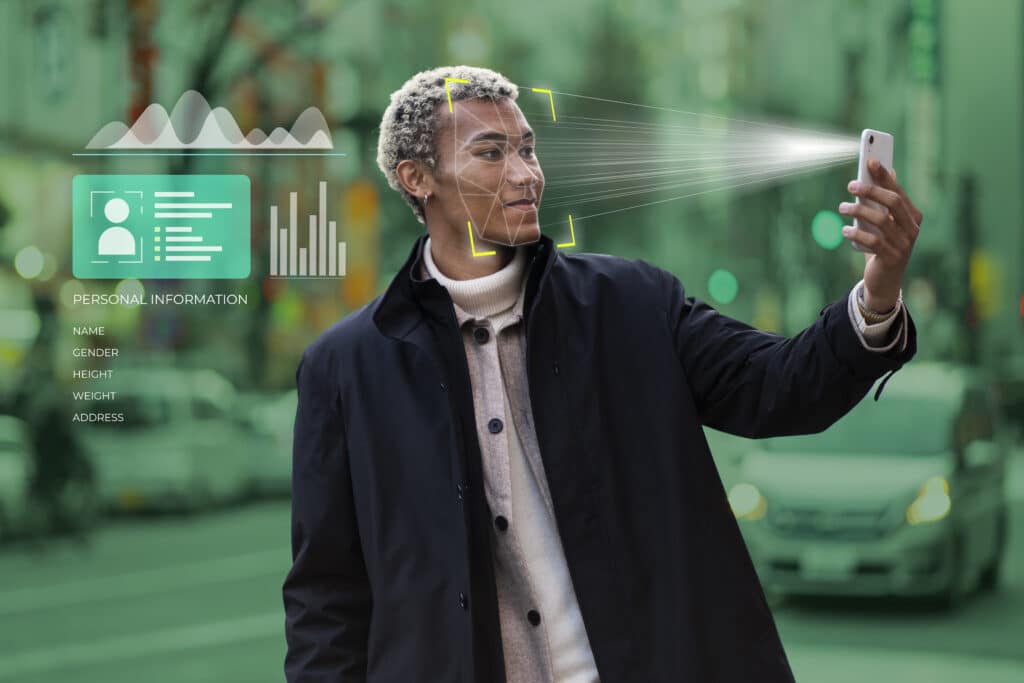
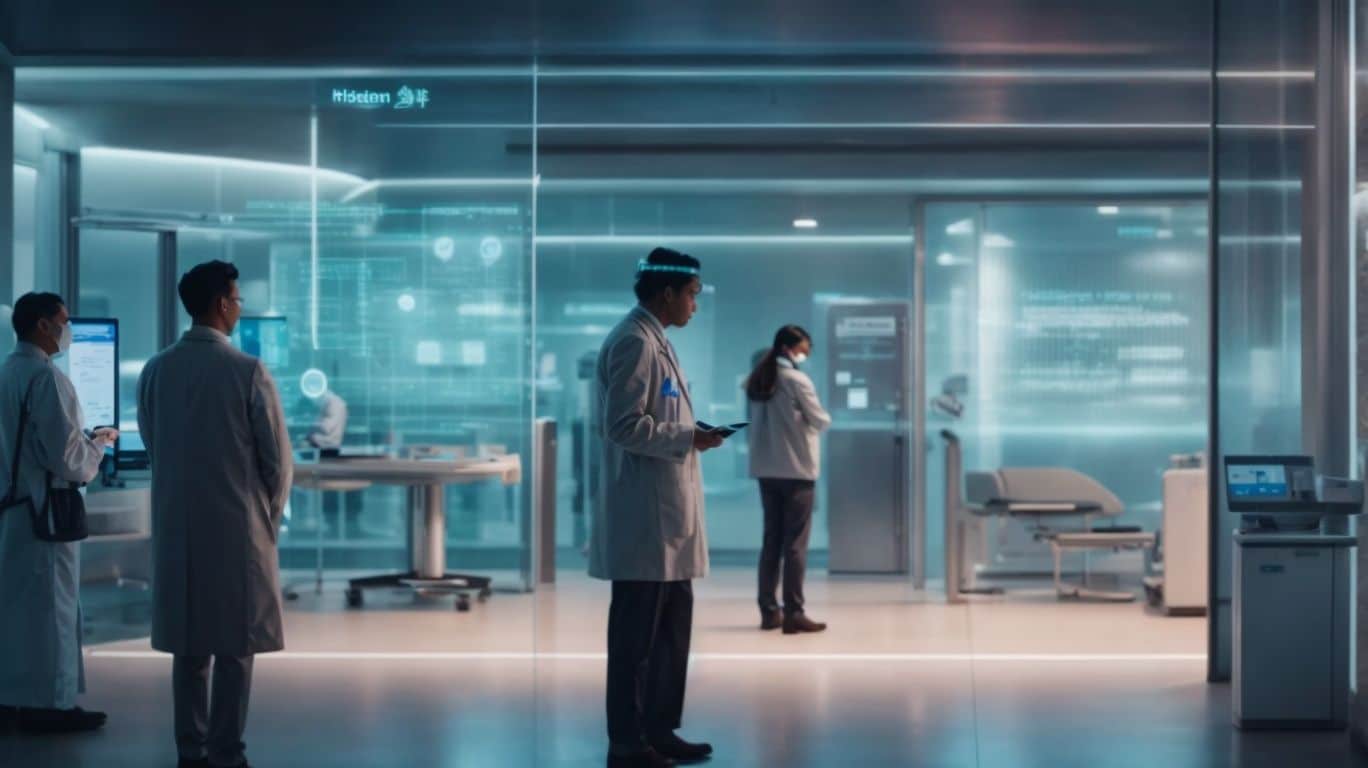
Advancements in technology have revolutionized various industries, and healthcare is no exception. One such innovation making waves in the healthcare sector is Facial Recognition Identity Verification. This article will delve into the intricacies of this technology, exploring how it works, its applications in healthcare, the benefits it offers, as well as the concerns and controversies surrounding its use.
We will discuss how healthcare organizations can effectively implement Facial Recognition Identity Verification to enhance efficiency and security while prioritizing patient experience.
What is Facial Recognition Identity Verification?
Facial Recognition Identity Verification is a technology that uses biometric data to confirm the identity of individuals based on their facial features.
This innovative technology has found widespread applications across various industries, including healthcare. In the healthcare sector, facial recognition identity verification plays a crucial role in ensuring accurate patient identification, streamlining access to medical records, and enhancing the overall efficiency of healthcare providers. By securely linking patient information to their unique facial characteristics, healthcare facilities can prevent errors and unauthorized access to sensitive data. The use of biometric data for security purposes in healthcare settings helps safeguard patient privacy and protects against identity theft and fraud.
How Does Facial Recognition Identity Verification Work?
Facial Recognition Identity Verification operates by analyzing facial features using advanced technologies such as machine learning and artificial intelligence.
These technologies enable the system to capture biometric data from an individual’s face, which is then translated into a digital code for comparison and authentication purposes. Machine learning algorithms process vast amounts of facial data to create a unique template that can be used to identify individuals accurately.
By comparing the facial features of the user to the stored template, the system can determine whether access should be granted or denied, enhancing security measures and streamlining authentication processes in various industries.
What Are the Applications of Facial Recognition Identity Verification in Healthcare?
Facial Recognition Identity Verification in healthcare has diverse applications, including patient identification, access control, and secure management of electronic health records.
This technology plays a crucial role in ensuring accurate patient identification, which is vital in preventing medical errors and enhancing patient safety. Facial recognition systems can enhance access control in healthcare settings by restricting unauthorized entry to sensitive areas such as operating rooms or medication storage facilities. Integrating this technology with electronic health records streamlines the verification process, improving efficiency and reducing the likelihood of errors in documentation. The use of facial recognition in healthcare promotes data security and confidentiality, safeguarding patient information from unauthorized access.
Patient Identification
Patient Identification through facial recognition streamlines the verification process for healthcare providers, ensuring accurate access to patient records.
This innovative technology helps healthcare professionals to quickly and securely verify the identities of patients, reducing the chances of errors or misidentifications. By utilizing biometric systems, such as facial recognition, hospitals and clinics can enhance their record management systems by linking each patient’s data to their unique facial features, creating a foolproof method for verifying identities. The integration of biometric technology not only saves time but also enhances the security of sensitive patient information, ensuring that only authorized personnel have access to vital medical records.
Medication Dispensing
Facial Recognition Identity Verification can enhance medication dispensing by ensuring patient safety and accurate retrieval of health information.
This advanced technology streamlines the medication management process by verifying the identity of patients before dispensing medication, reducing the risk of errors and unauthorized access to sensitive health records. Through facial recognition, healthcare providers can easily access up-to-date information about the patient’s medical history and allergies, enabling them to make informed decisions while prescribing medications. This innovative approach enhances patient safety by minimizing the chances of medication mix-ups and ensuring that the right medication is provided to the right individual, ultimately improving overall treatment outcomes.
Access Control
Facial Recognition Identity Verification provides secure access control in healthcare settings through authorized personnel and stringent authentication measures.
This advanced technology plays a crucial role in preventing unauthorized individuals from entering restricted areas within healthcare facilities. By capturing and analyzing facial features, the system ensures that only authorized personnel with the correct credentials are allowed access. Facial recognition enhances the overall security of healthcare environments by creating a layer of protection against potential security threats, such as identity fraud or unauthorized entry.
This not only helps in maintaining a safe and controlled environment but also streamlines access procedures, allowing for efficient and seamless entry and exit processes for staff and visitors alike.
What Are the Benefits of Facial Recognition Identity Verification in Healthcare?
Facial Recognition Identity Verification offers significant benefits to the healthcare system, including enhanced data security, improved accuracy in patient identification, and streamlined authentication processes.
One key advantage of implementing facial recognition technology in healthcare is the heightened level of data security it provides. By utilizing biometric identifiers, such as facial features, healthcare organizations can strengthen protection against unauthorized access to sensitive patient information, reducing the risk of data breaches and identity theft.
The accuracy in patient identification that facial recognition offers plays a vital role in ensuring that patient records are correctly linked to individuals, ultimately leading to improved clinical decision-making and personalized care. The efficiency of authentication procedures through facial recognition not only enhances workflow processes but also simplifies access to medical records, enhancing overall patient experience and satisfaction.
Increased Efficiency
Facial Recognition Identity Verification boosts operational efficiency in healthcare by automating processes through rapid facial scans and biometric authentication methods.
This technology facilitates instant verification of patient identities, enhancing treatment accuracy and streamlining administrative tasks. By utilizing efficient access management protocols, healthcare facilities ensure only authorized personnel can access sensitive information, safeguarding patient privacy.
Facial recognition systems can quickly identify patients in emergencies, providing crucial medical history and allergy information to medical staff promptly. The use of biometric authentication in healthcare operations minimizes errors associated with manual data entry and reduces the risk of identity fraud, ultimately leading to improved patient outcomes and operational effectiveness.
Improved Security
Facial Recognition Identity Verification enhances security measures in healthcare, preventing fraud, encrypting protected data, and ensuring the integrity of sensitive information.
By utilizing facial recognition technology, healthcare institutions can strengthen their security protocols through biometric authentication, which adds an extra layer of protection against unauthorized access. This not only secures patient records but also helps in detecting and preventing identity theft and insurance fraud. With robust data encryption practices in place, sensitive patient data is shielded from cyber threats and breaches, maintaining compliance with stringent data protection regulations.
Enhanced Patient Experience
Facial Recognition Identity Verification elevates the patient experience by enabling seamless user authentication, enhancing the management of health data, and ensuring accurate identity verification.
By utilizing facial recognition technology, healthcare providers can streamline the authentication process for patients accessing their medical records, leading to quicker and more efficient service delivery. This not only saves time for both patients and medical staff but also enhances security measures by reducing the risk of unauthorized access to sensitive health information.
The precise identification capabilities of facial recognition help in avoiding errors or mix-ups in patients’ records, thereby ensuring that each individual receives the appropriate care and treatment tailored to their unique medical history.
What Are the Concerns and Controversies Surrounding Facial Recognition Identity Verification in Healthcare?
Facial Recognition Identity Verification in healthcare is accompanied by concerns such as privacy issues, potential bias and inaccuracy, ethical dilemmas, and risks of identity theft.
Privacy concerns in facial recognition technology revolve around the collection and storage of sensitive biometric data, raising questions about its security and potential misuse.
The challenge of bias in facial recognition algorithms can lead to inaccurate identification, especially for individuals with diverse facial features.
Ethical implications arise from the use of this technology in healthcare settings, impacting patient trust and autonomy.
The vulnerability to identity theft exposes individuals to potential fraud and misuse of their personal information.
Privacy Concerns
Privacy concerns surrounding Facial Recognition Identity Verification revolve around the protection of user privacy, safeguarding sensitive health information, and ensuring the confidentiality of personal data.
In the realm of healthcare, where highly personal and confidential information is involved, the utilization of facial recognition technology raises additional ethical and legal questions. Also, patients rightly expect that their medical data will be handled with the utmost care and discretion.
Given the potential risks of data breaches and misuse, the need for stringent data protection measures is paramount. Additionally, this calls for implementing robust encryption protocols, access controls, and audit trails to monitor and safeguard protected health information from unauthorized access or disclosure.
Bias and Inaccuracy
Concerns about bias and inaccuracy in Facial Recognition Identity Verification pertain to potential disparities in biometric data, inaccuracies in facial matching, and limitations of existing biometric solutions.
Biometric data disparities can arise due to variations in image quality, lighting conditions, and facial expressions, leading to challenges in achieving a high level of accuracy in facial recognition systems.
The accuracy of facial matching processes is crucial as even minor discrepancies in data can result in false positives or failures to identify individuals. Addressing these issues requires the development of more robust biometric solutions that can adapt to diverse data sources and minimize the risk of bias impacting identification outcomes.
Ethical Considerations
Ethical considerations regarding Facial Recognition Identity Verification involve aspects such as obtaining user consent for identity verification, ensuring proper validation processes, and handling facial images responsibly.
The ethical dilemmas associated with facial recognition in healthcare extend to concerns surrounding the accuracy and reliability of validation procedures used. Issues arise when considering how the data extracted from individuals’ facial features is stored, shared, and secured. There is a fine line between the convenience and potential privacy infringements that come with facial recognition technology. Safeguarding patient identities and maintaining their trust in the healthcare system are paramount amidst these ethical challenges.
How Can Healthcare Organizations Implement Facial Recognition Identity Verification?
Healthcare organizations can integrate Facial Recognition Identity Verification by partnering with technology companies, training staff on authentication processes, and developing policies for regulatory compliance.
This implementation may involve collaborating with technology providers to customize facial recognition solutions to suit the specific needs of healthcare settings.
Staff training initiatives can focus on the secure handling of patient data and ensuring proper authentication protocols are followed.
Regulatory compliance frameworks, such as HIPAA in the United States, play a vital role in ensuring that patient information is protected and privacy is maintained throughout the facial recognition implementation process.
Partnering with Technology Companies
Healthcare organizations can enhance their capabilities by partnering with technology companies specializing in biometric verification, secure identity solutions, and advanced biometric recognition systems.
Collaborating with technology firms brings a host of benefits to the healthcare sector. By leveraging cutting-edge biometric recognition technologies, organizations can ensure a higher level of security and accuracy in patient identification, leading to reduced errors and improved patient safety. Implementing secure identity platforms can streamline access controls and enhance data protection measures. The advancements in biometric verification not only enhance operational efficiency but also help in preventing fraudulent activities within healthcare systems. Thus, embracing these technological partnerships can revolutionize the way healthcare organizations manage patient identities and safeguard sensitive information.
Training Staff and Educating Patients
Training healthcare staff on authentication protocols and educating patients on the benefits of identity confirmation plays a crucial role in ensuring patient security and data integrity.
Guiding personnel on accurately verifying patient identities through staff training is essential, especially given the increasing use of facial recognition technologies in healthcare settings.
Through proper training initiatives, employees can effectively navigate the intricacies of identity confirmation processes and understand the importance of safeguarding patient information.
Patient education, on the other hand, empowers individuals to actively participate in ensuring their own security and privacy, fostering a culture of transparency and trust within healthcare institutions.
Developing Policies and Protocols
Establishing comprehensive policies and protocols for identity proofing, biometric identification, and secure access management forms a critical foundation for successful implementation of Facial Recognition Identity Verification in healthcare.
These robust policies ensure that appropriate measures are in place to authenticate the identity of individuals prior to granting access to sensitive information or areas within healthcare facilities. Additionally, by setting clear standards for identity validation, organizations can mitigate the risks of unauthorized access and enhance overall security. Incorporating biometric identification guidelines helps in accurately verifying the identities of patients, employees, and visitors, further bolstering the effectiveness of facial recognition technology. Secure access management frameworks establish protocols for controlling and monitoring access rights, contributing to maintaining the integrity of the system and protecting sensitive data.
Frequently Asked Questions
What is facial recognition identity verification in healthcare?
Facial recognition identity verification in healthcare is a process of using facial recognition technology to verify the identity of patients, staff, or visitors in a healthcare setting. It involves capturing and analyzing facial features to determine if the person’s identity matches the stored data.
How does facial recognition identity verification work in healthcare?
Facial recognition identity verification in healthcare uses a combination of hardware and software. The hardware includes a camera or a facial recognition scanner, while the software uses algorithms to analyze facial features and compare them to a database of stored images to verify the person’s identity.
What are the benefits of using facial recognition identity verification in healthcare?
There are several benefits to using facial recognition identity verification in healthcare. Additionally, it can help prevent medical identity theft, improve patient safety by ensuring the right person is receiving treatment, and streamline the registration and check-in process.
Are there any privacy concerns with using facial recognition identity verification in healthcare?
Privacy concerns are a common issue with any type of biometric technology, including facial recognition identity verification. However, strict security measures are in place to protect the stored data, and the technology is continuously improving to address privacy concerns.
What are some potential challenges of implementing facial recognition identity verification in healthcare?
One potential challenge is the cost of implementing the technology, as it may require purchasing new hardware and software. Additionally, another challenge is ensuring the accuracy of the technology, as different lighting conditions, facial expressions, and aging can affect the accuracy of facial recognition.
Can facial recognition identity verification be used for patient records?
Facial recognition identity verification can integrate with electronic health records to improve accuracy and reduce errors in patient records. This can also help healthcare providers quickly access patient information and reduce wait times for patients.

